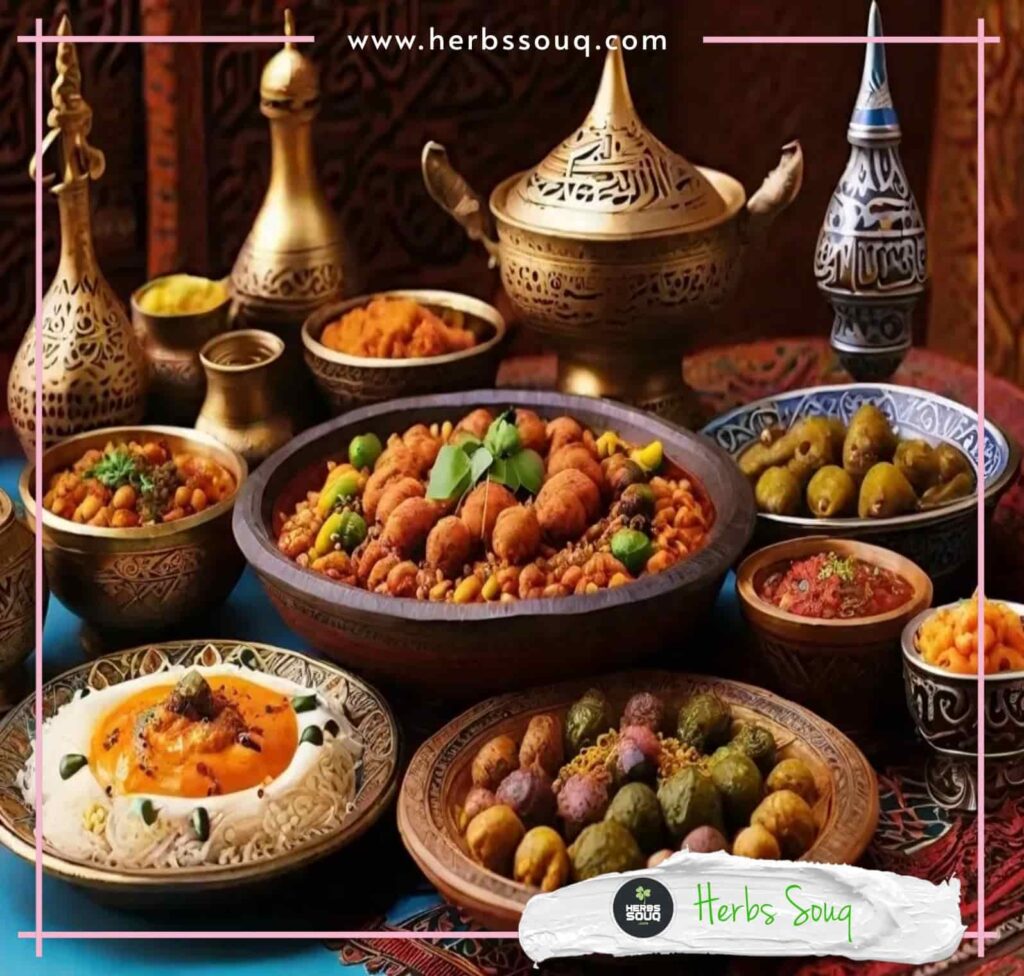What Are Called Herbs? A Comprehensive Guide for Everyone
*Note: If you are seeking best herbs in the world, you can explore a wide range of products available in our HerbSSouq shop. Click Here.
What are called herbs? If you wonder about these natural wonders that nations have used for centuries to enhance flavor, promote health, and offer various other benefits, you’ve come to the right place. In this article, we’ll explore the world of herbs.
Nature’s Gift
Firstly, herbalists, often refer to as “nature’s gift,” are plants have high value for their culinary, medicinal, and aromatic properties. Moreover, these versatile plants have been an essential part of human history for generations, dating back to ancient civilizations like the Egyptians, Greeks, and Romans.
Their Role in Cooking
For instance, herbs play a pivotal role in the culinary world, adding depth and flavor to dishes. For example, basil and thyme, each herb has its unique taste and aroma, making it a must-have in any kitchen. Whether you’re a seasoned chef or a home cook, herbs are your secret weapon to elevate your dishes.
Exploring Medicinal Uses
Beyond the kitchen, they have long been used for their medicinal properties. Indeed, herbal remedies have been practiced for centuries, passed down through generations. Not only-but also the soothing chamomile tea to the potent benefits of ginger, herbs offer natural solutions for a variety of health issues.
Understanding the Difference: Herbs vs. Spices
Before delving further, it’s essential to distinguish between herbs and spices. Herbs are the leaves, stems, and flowers of plants used for flavoring and medicine, while spices typically come from the roots, bark, seeds, or fruits of plants and chefs use them primarily for flavoring. Keep this difference in mind as we explore more about them.
Common Herbs and Their Uses
Let’s dive into a few common herbs and their uses:
- Basil: A fragrant herb known for its association with Italian cuisine. Indeed, it’s excellent in pesto and tomato-based dishes.
- Rosemary: A versatile herb that complements roasted meats, potatoes, and even bread.
- Mint: Known for its refreshing taste, mint is a favorite in desserts, beverages, and Middle Eastern dishes.
- Thyme: A vital herb in French cuisine, used to flavor stews, soups, and roasts.
- Cilantro (Coriander): Essential in Mexican and Asian cuisines, cilantro adds a burst of flavor to dishes like salsa and curries.
- Parsley: Used as a garnish and in a variety of dishes, parsley provides a fresh, earthy flavor.
- Oregano: A must-have for pizza lovers, oregano is a staple in Italian and Mediterranean cooking.
- Sage: Known for its strong flavor, sage pairs well with poultry and stuffing.
Benefits Beyond Flavor
Professional cookers use herbs to enhance the taste of dishes, they offer an array of health benefits as well. Besides, herbs can be considered a form of natural medicine, with each herb possessing unique properties that can help with various health concerns. Here are a few examples:
- Peppermint: Known for its ability to soothe digestive issues and relieve headaches.
- Lavender: Used for its calming and relaxing properties, often found in aromatherapy.
- Ginger: A powerful herb with anti-inflammatory and digestive benefits.
- Chamomile: Renowned for its calming effects and as a remedy for insomnia.
- Echinacea: Widely used to boost the immune system and reduce the severity and duration of colds.
- Turmeric: A potent anti-inflammatory herb with numerous health benefits.
Cultivating Herbs at Home
Interested in having your own herb garden? Growing them at home is not only cost-effective but also ensures a fresh and readily available supply for your culinary and medicinal needs. In fact, many can grow indoors or outdoors, making it a great hobby for gardeners and non-gardeners alike.
Resources:
Herbs in Various Cultures
Herbs have a rich cultural history and are integral to the culinary traditions of many countries. Here are a few examples:
- Mediterranean: Mediterranean cuisine heavily relies on herbs like basil, oregano, and rosemary, enhancing the flavors of dishes like pasta, roasted meats, and salads.
- Indian: The vibrant and diverse Indian cuisine employs a wide range of herbs and spices, such as coriander, cumin, and turmeric, creating complex and aromatic flavors.
- Thai: Thai cuisine is renowned for its use of herbs like lemongrass, basil, and cilantro, which contribute to the distinctive and fresh taste of Thai dishes.
- Mexican: Mexican cuisine incorporates them like cilantro and oregano into salsas, guacamole, and various dishes, adding a burst of flavor.
A World of Herbal Remedies
Herbal remedies have transcended cultural boundaries and continue to be an essential aspect of natural healthcare. These remedies offer holistic approaches to treating various ailments and maintaining overall well-being.
Modern Medicine and Herbs
In recent years, there has been a resurgence of interest in herbal medicine within the field of modern healthcare. Furthermore, researchers are exploring the potential of herbs in treating a range of conditions, including inflammation, anxiety, and even chronic diseases.
Safety and Precautions
While herbs offer numerous benefits, it’s essential to use them with care and understanding. Here are a few tips:
- Consult with a healthcare professional before using them for medicinal purposes, especially if you’re pregnant, nursing, or taking other medications.
- Be aware of potential interactions between herbs and prescription drugs.
- Start with small quantities when using them in your cooking, as their flavors can be quite potent.
- Always buy them from trusted sources to ensure quality and safety.
In conclusion, herbs are a fascinating and diverse category of plants that seince cherished for their culinary and medicinal properties throughout history. From enhancing the flavor of our favorite dishes to providing natural remedies for various ailments, they have a lot to offer. Consequently, with the right knowledge and care, you can incorporate herbs into your daily life, exploring their vast potential for improved health and enjoyment in the kitchen. So, the next time you ask, “What are called herbs?” remember that they are the marvelous plants that can transform your meals and enrich your well-being.
*Note: If you are seeking best herbs in the world, you can explore a wide range of products available in our HerbSSouq shop. Click Here.





